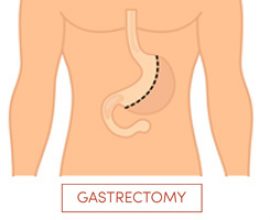What You Should Understand About Weight Loss Surgery

If you have considered weight loss surgery, your doctor may have suggested learning more about what to expect before, during, and after the procedure. Not only do surgeons require bariatric surgery patients to be in good health for the procedure, but it is also necessary to mentally prepare yourself for the journey ahead. It is not a cure for your weight issues. It will still take hard work and dedication to be successful in the long-term. Weight loss surgery is a great tool to help you lose the weight you desire.
Realistic Weight Loss Expectations After Surgery
It should be noted that bariatric surgery is only for those patients who are obese with a BMI of at least 30 or more. In the first year after surgery, the amount a patient will lose depends on the type of procedure received. It is expected for patients to lose between 50 and 70 percent of their extra body fat in the first two years regardless of which type of weight loss surgery they get completed.
What To Expect Before Surgery
Oftentimes, doctors may have patients lose some weight before they allow the surgery. This is to improve a patient’s health before the procedure and to show the doctor you are ready for the commitment to changing your life. It is common for surgeons to have patients lose anywhere from 15 to 40 pounds before their surgery date.
If you are a smoker, your doctor will most likely ask you to quit. This will allow for safer surgery and will improve your overall health. It will also decrease your risk of getting lung cancer. Additionally, your doctor might suggest you see a nutritionist for help changing the way you eat. The more eating habits you change before your surgery, the better you can adapt to your new life after the procedure and achieve better results.
The Inherent Risks Of Surgery
Weight loss surgery carries risks just like any other type of surgery. Both the risks and benefits should be considered before choosing to elect the procedure. With bariatric surgery, complications such as blood clots and infections could happen. You may also be at risk for an increase in nutritional deficiencies after the procedure. Your doctor will want to closely monitor your health and have you submit to regular checkups to ensure your health stays on track. Eating healthy, exercising, and taking supplements can help you reduce these risks.
Related Posts
5 Risks of Obesity
How Sleeve Gastrectomy Works
The Advantages of Orbera
Are You a Candidate for Sleeve Surgery?
Contact Info
3420 Bristol St #700, Costa Mesa, CA 92626, USA
Orange Location
1310 W Stewart Dr. Suite 310, Orange, CA 92868, USA
*DISCLAIMER
In compliance with 16 CFR 255 and Federal Trade Commission Guidelines on the use of endorsements and testimonials in the marketing and advertising of websites:
The testimonials, statements, and opinions presented on our website are only applicable to the individuals depicted, and may not be representative of the experience of others. The testimonials are voluntary provided and are not paid, nor were they provided with free products, services, or any benefits in exchange for said statements. The testimonials are not indicative of future results or success of any other individuals. South Coast Specialty Surgery Center cannot and does not guarantee the medical outcome or the results of individuals utilizing the services provided by us or the providers in our network, or from any of the websites we link, or refer to. The testimonials and endorsements found on the site for the benefit of the site or individual services or procedures are, to the best of our knowledge, the true statements and beliefs of the individuals providing them. In short, surgery involves risk, results may vary, and outcomes are not guaranteed.
Some pages of this website may feature a depiction of a model showing emphasis of the torso. Product names may be mentioned in testimonials or elsewhere, and are trademarks or registered trademarks of their respective holders. Please refer to our Terms and Risks of Surgery pages for more information. Gastric Sleeve Surgery Centers performs Gastric Sleeve Surgery in Orange County, San Diego, Los Angeles, Riverside County and other location in Southern
California.




